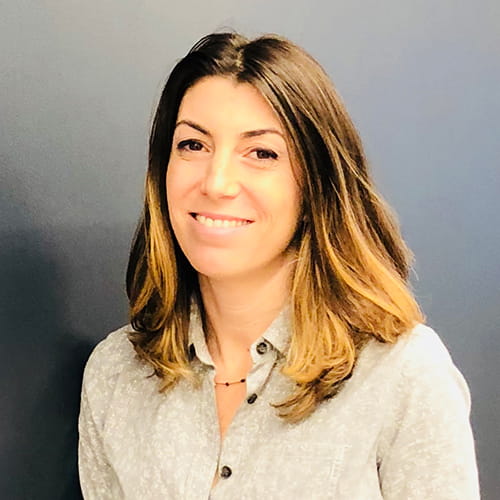Daphna
Weissglas

Daphna
Weissglas

Bio
Daphna is the Biomedical Informatics team leader at MyHeritage, a leading global discovery platform for exploring family history and gaining valuable health insights. Her team is responsible for building risk models of complex genetic conditions including cancer and heart disease. Daphna received her PhD from the Department of Human Genetics, at UCLA where subsequently did her post-doc.She was supported by the National Human Genome Research Institute (NHGRI) at NIH, and majored in medical population genetics.
Bio
Daphna is the Biomedical Informatics team leader at MyHeritage, a leading global discovery platform for exploring family history and gaining valuable health insights. Her team is responsible for building risk models of complex genetic conditions including cancer and heart disease. Daphna received her PhD from the Department of Human Genetics, at UCLA where subsequently did her post-doc.She was supported by the National Human Genome Research Institute (NHGRI) at NIH, and majored in medical population genetics.
Abstract
Personalized disease risk prediction holds great promise for focused prevention, early intervention, and patient empowerment. The recent advent of polygenic risk scores now allows early risk prediction based on genetic information. However, there are multiple challenges in turning raw predictions into clinical information, ranging from statistical issues, regulatory aspects, risk communication and transferability.
Here, we describe the implementation of genetic risk prediction at MyHeritage, a global direct-to-consumer genetic testing company. Our database is one of the largest of its kind, including over three million genetic profiles and hundreds of thousands of questionnaires. We leveraged our data to develop a clinical risk score for a range of common complex conditions, including heart disease, breast cancer, type 2 diabetes, hypertension and obesity. We validated our predictions by multiple means to guarantee their accuracy and relevance.
This talk will demonstrate the process and challenges of transforming data science into an end-to-end product that empowers the lives of participants in the new world of affordable genetic testing.
Abstract
Personalized disease risk prediction holds great promise for focused prevention, early intervention, and patient empowerment. The recent advent of polygenic risk scores now allows early risk prediction based on genetic information. However, there are multiple challenges in turning raw predictions into clinical information, ranging from statistical issues, regulatory aspects, risk communication and transferability.
Here, we describe the implementation of genetic risk prediction at MyHeritage, a global direct-to-consumer genetic testing company. Our database is one of the largest of its kind, including over three million genetic profiles and hundreds of thousands of questionnaires. We leveraged our data to develop a clinical risk score for a range of common complex conditions, including heart disease, breast cancer, type 2 diabetes, hypertension and obesity. We validated our predictions by multiple means to guarantee their accuracy and relevance.
This talk will demonstrate the process and challenges of transforming data science into an end-to-end product that empowers the lives of participants in the new world of affordable genetic testing.
Planned Agenda
| 8:45 | Reception |
|---|---|
| 9:30 | Opening words by Shir Meir Lador, Data Science leader at Intuit |
| 9:45 | Yael Karov - AI For Assisting in Task Completion |
| 10:15 | Ofra Amir - Agent Strategy Summarization: Describing Agent Behavior to People |
| 10:45 | Break |
| 11:00 | Lightning talks |
| 12:30 | Lunch & Poster session |
|---|---|
| 13:30 | Roundtable session & Poster session |
| 14:30 | Roundtable closure |
| 14:45 | Gal Yona - How Fair Can We Be |
| 15:15 | Daphna Weissglas - Turning Data Science Into Precision Medicine Empowering Millions |
| 15:45 | Closing remarks |
Planned Agenda
| 8:45 | Reception |
|---|---|
| 9:30 | Opening words by Shir Meir Lador, Data Science leader at Intuit |
| 9:45 | Yael Karov - AI For Assisting in Task Completion |
| 10:15 | Ofra Amir - Agent Strategy Summarization: Describing Agent Behavior to People |
| 10:45 | Break |
| 11:00 | Lightning talks |
| 12:30 | Lunch & Poster session |
| 13:30 | Roundtable session & Poster session |
| 14:30 | Roundtable closure |
| 14:45 | Gal Yona - How Fair Can We Be |
| 15:15 | Daphna Weissglas - Turning Data Science Into Precision Medicine Empowering Millions |
| 15:45 | Closing remarks |




